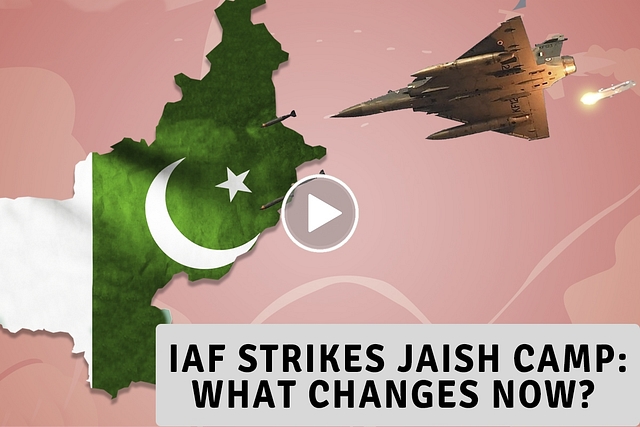
[Watch] With Air Strike On JeM Camp, India Is Changing How It Will Operate With Pakistan
Alright, so… if you’re from India or Pakistan, you don’t have to be a news junkie to know what happened today in the early hours of the morning. And what happened was significant. After the Pulwama attack on 14 February, in which over 40 CRPF personnel were martyred in a suicide bombing attack, carried out by Pakistan-based Jaish-e-Mohammad, there was plenty of talk about how India was going to retaliate, essentially what steps it would take.
And then, today, reportedly at around 3.30 am, India struck “the biggest training camp of JeM in Balakot.” Now… where is Balakot? It’s inside Pakistan territory. And that should itself give you an indication that things have changed.
The official statement of the Foreign Secretary said that “a very large number of JeM terrorists, trainers, senior commanders and groups of jihadis...were eliminated” and that the “facility at Balakot was headed by Maulana Yousuf Azhar,” who is JeM chief Masood Azhar’s brother-in-law.
And, of course, other small details have also emerged, such as that 12 Mirage 2000 aircraft were used for the operation and so forth.
But, moving past the details, what is striking about this attack? There are a few important things.
One is that by crossing the Line of Control and attacking beyond even the PoK region and into Pakistan, we’ve broken with tradition – almost an unwritten rule. In fact, the last time we crossed over to the other side of LoC was during the 1971 war.
So now the message is, we’ll go into Pakistan if we have to, to counter terror. No holding back.
Two, you noticed who gave the briefing about the attack today? It was the Foreign Secretary. This is different from what happened after the surgical strike in the wake of the attack on Uri – it was the army that did this role on that occasion.
This is clearly emphasising the “non-military” nature of the attack. Even in the use of the phrase “non-military preemptive action” in the official statement, the communication is that we are not going to war with Pakistan, no, we are only going after terrorists who want to do us harm.
Three, is today’s IAF strike seeking to avenge the Pulwama attack? The Foreign Secretary said this was a “pre-emptive” attack, which means it’s one carried out to prevent future attacks. Now you can read this particular term in two ways: one is a signal that we won’t sit back and wait for things to go wrong in order to then retaliate – we will take advance action, if necessary, to protect ourselves.
Next is probably an invitation to Imran Khan, who has been asking for “actionable evidence” in the wake of Pulwama, to go find the evidence of JeM activity in the rubble that India left in the morning.
There is also a clear message that India is just protecting itself – it's not interested in starting anything, not keen on any misadventures of any kind. This is self-defence and nothing else.
These are largely the points that have stood out as striking or significant.
So what does India need to do now? It will have to be prepared for possible retaliation from Pakistan, as, of course, the Indian establishment knows better than any of us, because our neighbour's pride is now wounded.
They might respond in a couple of ways – they might step up suicide attacks in Kashmir or even elsewhere in India. Or maybe they will look to strike a strategic asset inside India.
Either way, the ball is now in their court. And it’s hard to see Pakistan coming out looking good or even halfway decent in the international community howsoever it chooses to respond.
For India, it has made its intentions going forward very clear. Self-defence, even if it means striking first. The days of hanging back and being merely reactive are now over.